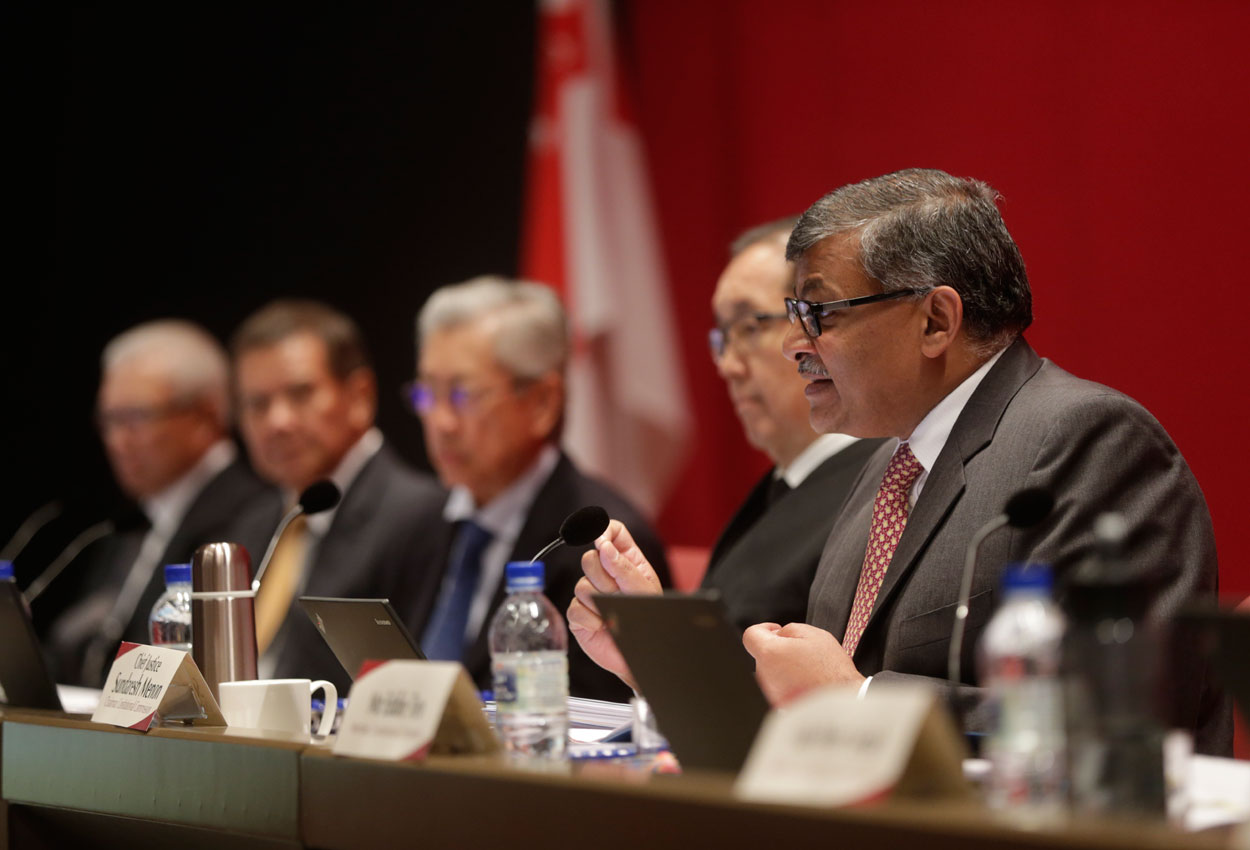A special report recommending changes to Singapore’s elected presidency was received by Prime Minister Lee Hsien Loong yesterday, and the Government will give its response in “due course”.
The Straits Times understands that PM Lee will address the issue of the elected presidency on Sunday at the National Day Rally, an annual address where he maps out the nation’s future directions and announces policy changes.
The report comes six months after he appointed a Constitutional Commission, chaired by Chief Justice Sundaresh Menon, to review the institution so that it keeps up with the times, including the possibility of having a minority candidate elected from time to time.
Mr Lee thanked the nine-member commission “for the deliberation and care with which they have carried out their tasks”, the Prime Minister’s Office (PMO) said after getting the report earlier in the day.
“The Government will study the report. It will publish the report and give its response in due course,” added the PMO statement.
Singapore Management University law professor Eugene Tan, a former Nominated MP, said: “The National Day Rally is a valuable opportunity for the PM to share his thoughts on the elected presidency.”
Parliament may even debate the report as early as next month, he added. “The countdown to the next presidential election has started. The earlier constitutional amendments are made, the more lead time potential candidates have to adjust to them.”
The presidential election must be held by August next year.
Political observer Zulkifli Baharudin said the public also needs to be educated about the changes as “they are the ones who will be voting the next president in”.
Prof Tan was among 20 individuals and groups invited by the commission to expand on their ideas on changes they want to see in the elected presidency. They gave their views during four public hearings.
The commission also received more than 100 written submissions.
Mr Lee first spoke about the need to review the elected presidency in January, after last year’s general election. Speaking at the first sitting of the 13th Parliament, he said the head of state should remain elected.
But, he added, three areas should be studied:
– How to update the qualifying criteria of candidates for the elected presidency.
– How to strengthen the Council of Presidential Advisers, which advises the president in exercising his custodial and discretionary powers.
– How to ensure those in a minority race will have the chance to be elected as president.
During the commission’s hearings, the issue of minority representation was the most hotly debated. While most speakers broadly agreed on the need for a minority president from time to time, they were split on how to achieve it.
Some suggested reserving elections for candidates from a particular minority group that has not had a president for several terms. Others were worried that doing so would undermine meritocracy.
Constitutional law expert Kevin Tan, who spoke at the hearing, said: “It is the most difficult to manage. How are you going to engineer a situation where you will have a president from a minority race?”
Another issue was the qualifying criterion. Several said the bar for a private-sector candidate should be raised. But some felt it might shrink the pool of potential candidates, especially from the minority groups.
Currently, would-be candidates from the private sector must have run a company with a paid-up capital of at least $100 million.

This article was first published on August 18, 2016.
Get a copy of The Straits Times or go to straitstimes.com for more stories.






